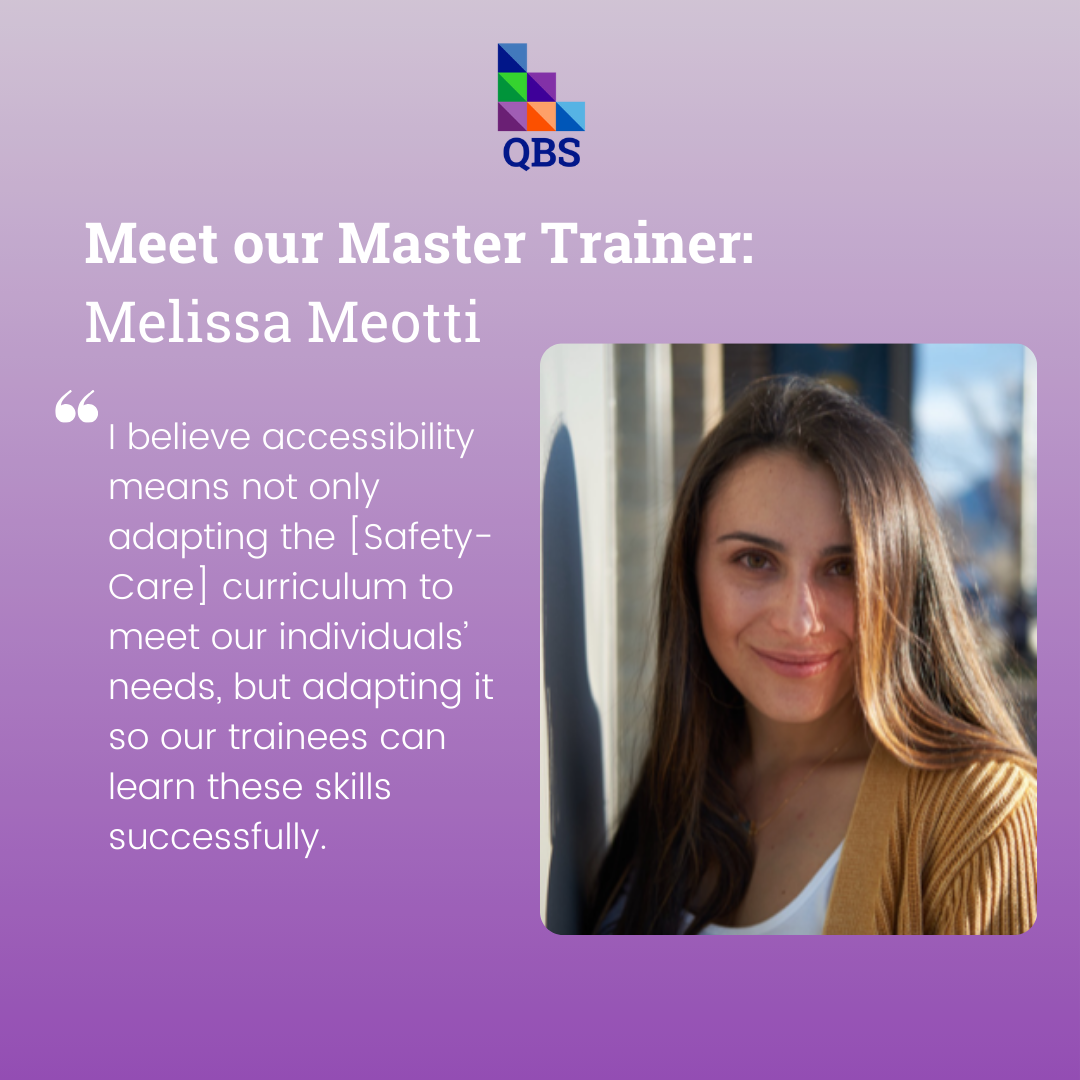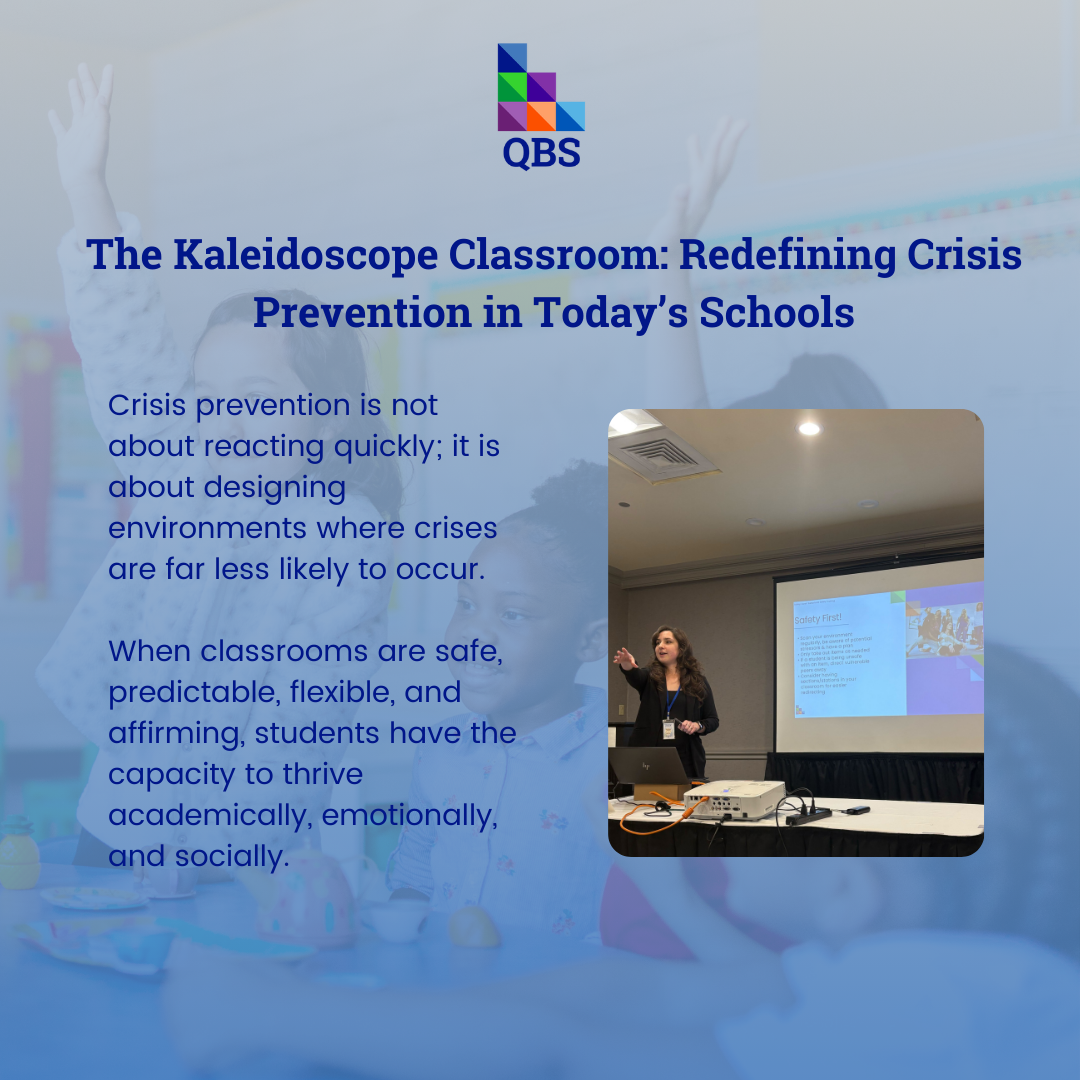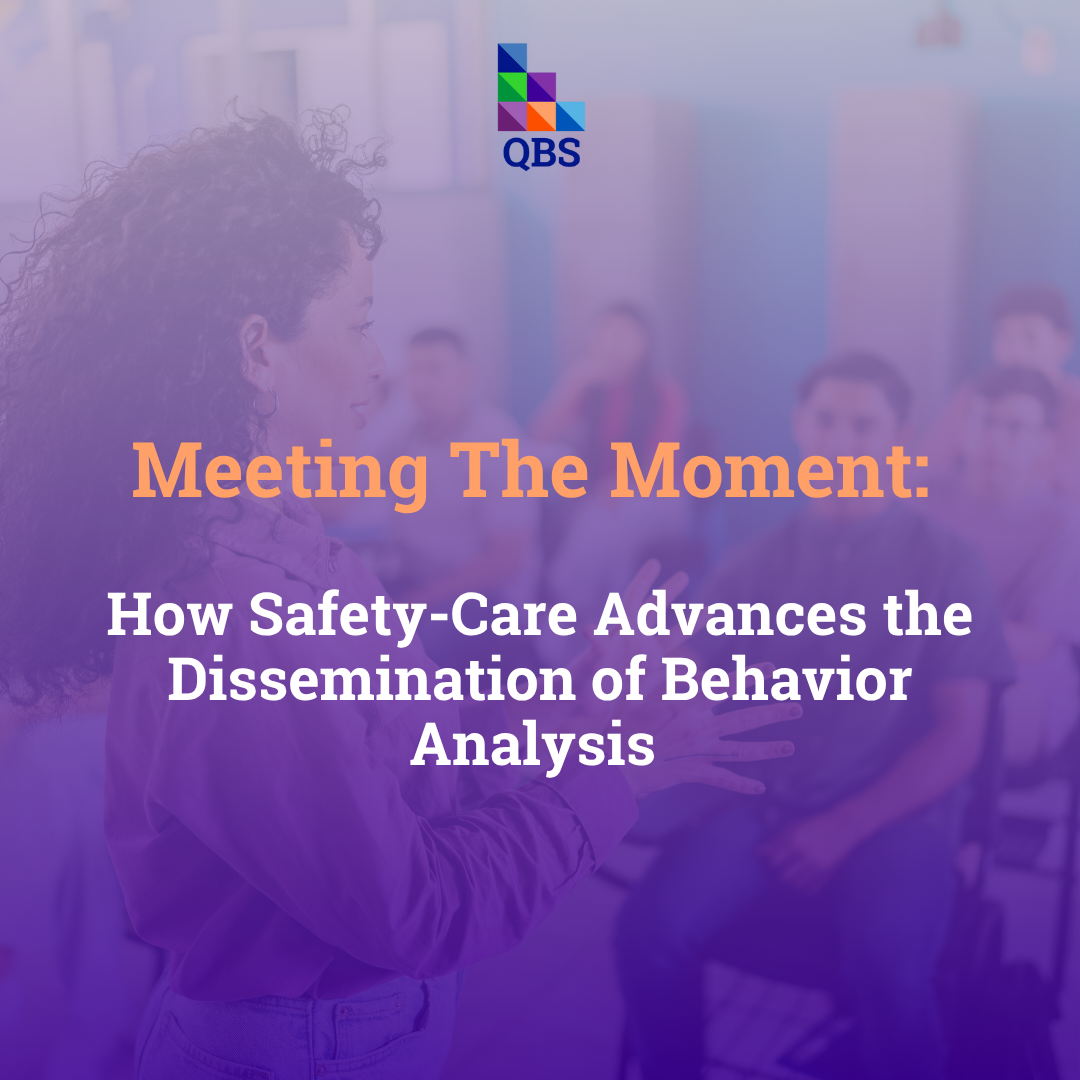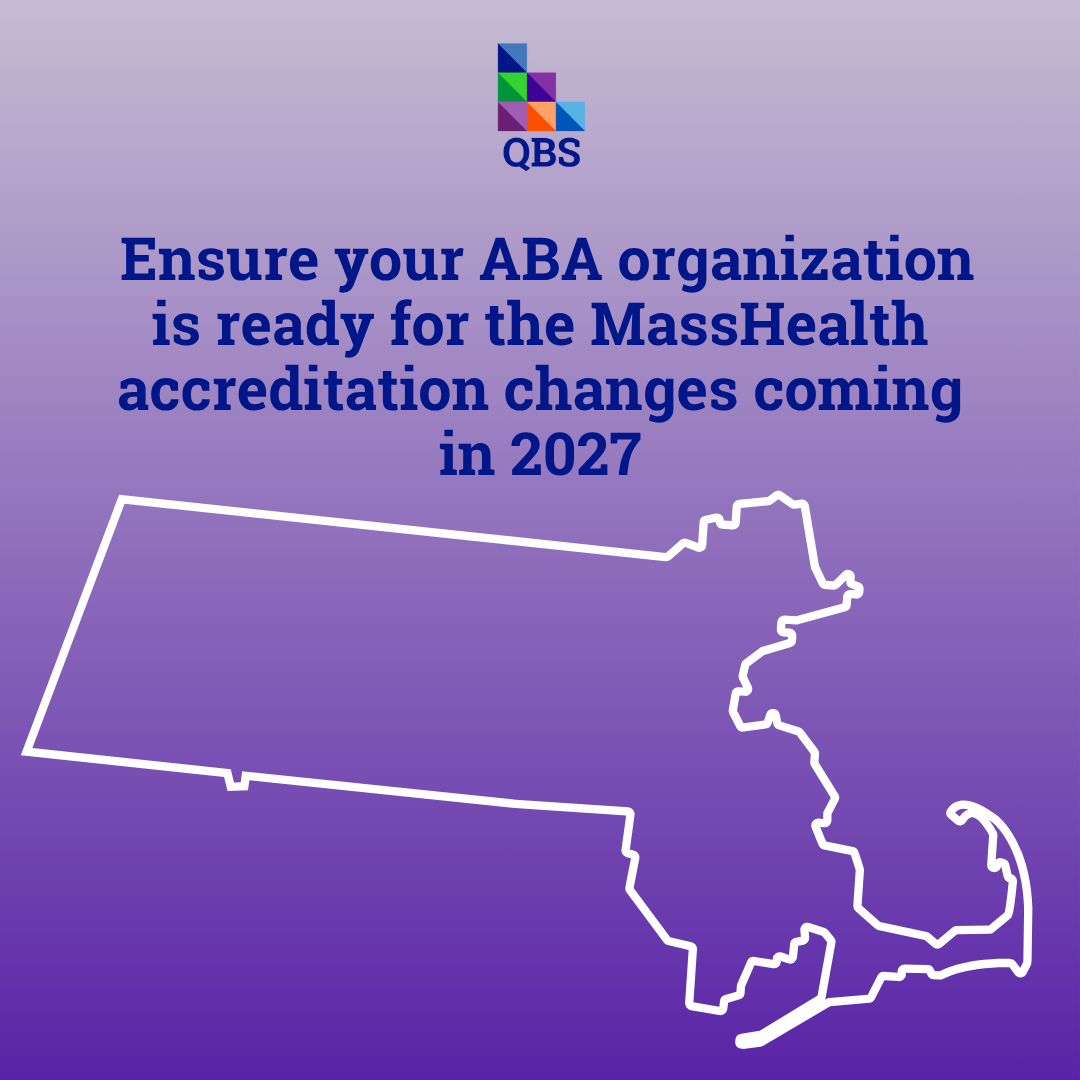For nearly 20 years, QBS has been providing evidence-based training to residential, treatment, educational, and healthcare organizations, helping their staff become more skilled, creative, and effective at responding to challenging behavior.

About QBS
Building Expertise and Capacity in the Organizations We Serve
Our History
Since 1997, the mission of QBS has been to provide quality behavioral solutions to complex behavior challenges through evidence-based training and consulting services. Using an applied behavioral analytic foundation, QBS is committed to providing customers with competency-based training frameworks, resulting in positive outcomes.
As an employer of over 20 Board Certified Behavior Analysts (BCBAs), QBS is proud to have its roots in ABA, and we continue to engage with the community and our customers to ensure our curriculum incorporates the latest research and developments.
Since 1997, the mission of QBS has been to provide quality behavioral solutions to complex behavior challenges through evidence-based training and consulting services. Using an applied behavioral analytic foundation, QBS is committed to providing customers with competency-based training frameworks, resulting in positive outcomes.
As an employer of over 20 Board Certified Behavior Analysts (BCBAs), QBS is proud to have its roots in ABA, and we continue to engage with the community and our customers to ensure our curriculum incorporates the latest research and developments.
Safety-Care®
Safety-Care was originally developed by QBS 20 years ago with a strong foundation in Applied Behavioral Analysis (ABA) and Positive Behavioral Interventions and Supports (PBIS) principles. Over the last two decades, the program has been adopted widely across the US making it one of the largest and fastest-growing crisis prevention programs in the world.
The field of ABA has also grown rapidly during the same timeframe as its rigorous, evidence-based approach has become more widely recognized and embraced across education, healthcare, human services, and a wide range of other settings.
Safety-Care was originally developed by QBS 20 years ago with a strong foundation in Applied Behavioral Analysis (ABA) and Positive Behavioral Interventions and Supports (PBIS) principles. Over the last two decades, the program has been adopted widely across the US making it one of the largest and fastest-growing crisis prevention programs in the world.
The field of ABA has also grown rapidly during the same timeframe as its rigorous, evidence-based approach has become more widely recognized and embraced across education, healthcare, human services, and a wide range of other settings.

Our Guiding Principles are Founded in Research
QBS's behavioral training provides organizations with evidence-based crisis prevention and de-escalation techniques. We teach all trainers not just to competency, but to fluency, to ensure organizations, students, patients, and staff remain safe in all environments.
Our Quality Behavioral Solutions® portfolio of training courses and consulting services are focused on behavioral competency, safety, and crisis prevention. These solutions include behavioral competencies and risk prevention through improved processes for client safety and crisis prevention in the fields of education, healthcare, and human services.
Why Choose QBS?

-
Safety-Care® teaches staff a wide range of verbal and physical prevention strategies (what to be aware of, how to approach a person, how to stand, how to sit, what to say, how to say it, how to support other staff, etc.). The preventative focus is designed to be an active part of an organization's restraint prevention and elimination initiative. Our goal is to help you prevent crises so you don't have to manage them. If there is a crisis, we provide safe and effective tools for management, too.









 By using our site, you consent to our use of cookies to enhance functionality and analyze site performance.
By using our site, you consent to our use of cookies to enhance functionality and analyze site performance.